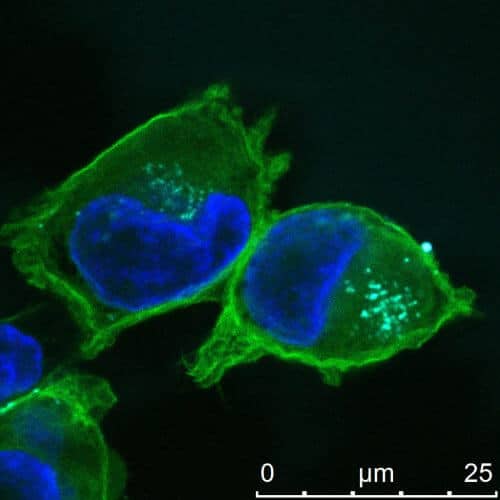Following the discovery, the researchers were able to develop a treatment that significantly delayed the development of malignant tumors in mice

"Pancreatic cancer is an extremely violent disease," says Prof. Ronit Sachi-Painero, head of the department of physiology and pharmacology and head of the laboratory for cancer research and nanomedicine at the Sackler Faculty of Medicine at Tel Aviv University. "Despite all the treatments offered by modern medicine, many pancreatic cancer patients die within a few months of diagnosis, and 75% die within a year. However, 7 percent of those diagnosed survive five years or more. But until now it was not known what distinguishes the surviving patients compared to all the others."
A new study led by Prof. Ronit Sachi-Painero revealed for the first time distinct genetic differences between the pancreatic cancer cells of the two types of patients. More than that: drugs based on the discovery significantly extended the lives of mice in a pancreatic cancer model.
Biology doctoral student Hadas Gabori and chemist Dr. Shai Eliyahu, from the multidisciplinary research group of Prof. Sachi-Finaro at Tel Aviv University, participated in the study, in collaboration with Prof. Eitan Rupin from the University of Maryland, Prof. Galia Blum from the Hebrew University, and Prof. Iris Barshak and Dr. Talia Golan from the Sheba Medical Center. The article was published on Tuesday (2.1.18) in the journal Nature Communications.
"In the first step, we took cell samples from pancreatic cancer tumors, and tested the expression level of genes and micro RNA," explains Prof. Sachi-Painero. "In most cases, the findings corresponded to a clinical picture of violent cancer: a lack of RNA molecules of the type microRNA-34a, known to inhibit genes that promote cancer, and on the other hand - a high level - of the oncogene Plk1, which accelerates the activity of cancerous tumors. In order to examine the relationship between the findings and the survival time of the patients, we contacted Prof. Eitan Rupin, an expert in bioinformatics. Prof. Rupin used the huge database TCGA - 'The Cancer Genome Atlas', and applied to it dedicated algorithms he developed for the purpose of the task. His calculations revealed that in patients who survived a long time there is an opposite relationship: a high level of the cancer inhibitor microRNA-34a, and a low level of the oncogene Plk1.
Now, to confirm their findings, the researchers examined whole tissues (as opposed to samples of individual cells) from pancreatic cancer tumors of patients treated at Sheba Medical Center in Tel Hashomer, who already know how long they survived with the disease. In these tissues, the levels of microRNA-34a on the one hand, and of the oncogene Plk1 on the other hand, were tested. Indeed, once again, an inverse relationship was found between the levels of both in the 'normal' patients versus the 'survivors'.
Now the most critical question remains before the researchers: Can the new discovery help delay cancer and prolong the lives of patients? To test this, they will produce tiny drug carriers - nanoparticles made of polymers, which break down and release the substance stored inside them under the influence of a specific enzyme found at the site of the cancer. Inside the carriers they packed microRNA-34a (which is lacking in the patients who die early), along with siRNA (small interfering RNA) that silences the oncogene Plk1. The product was injected into mice in a pancreatic cancer model, and the results were promising: when the two substances were released together at the tumor site, they acted synergistically , delayed the progression of the cancer, and significantly extended the lives of the mice. In fact, after 45 days, the combined treatment inhibited the growth of the cancerous tumor by 96%.
"We believe that our discovery may serve as a basis for the future development of an effective drug cocktail, which will prolong the lives of patients with aggressive pancreatic cancer," concludes Prof. Sacchi-Painero, "moreover: the principles we uncovered in the study may form the basis for research that will yield drugs for other types of cancer as well more violent.”
See more on the subject on the science website:
- The most important discoveries in biology in 2017: precise editing of genes; A genetic cure for cancer
- Researchers have developed a "switch" that activates the immune system to attack cancer cells when it detects signs of the disease
- Researchers have developed a substance that kills cancer metastases without harming normal cells
- The army to destroy cancer
